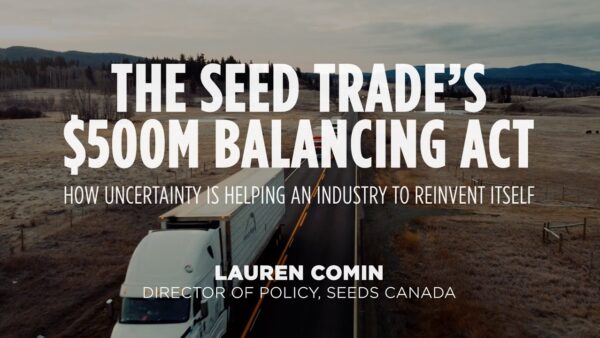It is often easy for anti-technology, anti-corporate activists to paint their own picture of reality, especially when it comes to the lucrative business of biotech fearmongering. So, when an esteemed scientist stands up and demonstrates more than 20 benefits from genome editing, we have a duty to let the facts overwhelm the activist rhetoric.
Agnès Ricroch is a member of the French Academy of Agriculture and associate professor in Evolutionary Genetics and Plant Breeding at University Paris-Saclay and AgroParisTech. She gave a keynote at an OECD conference on genome editing in June 2018. From the publication based on her speech (Global developments of genome editing in agriculture, Transgenic Res (2019) 28:45–52), here are Professor Ricroch’s 20 benefits from agricultural genome editing.
- Low cost opens up the technology and innovations to researchers in non-profits, smaller companies and public institutions.
- Precision breeding allows for the removal of undesirable DNA in an enhanced breeding process.
- Fewer off-target mutations with site-specific editing techniques lowers the risks of adverse outcomes.
- Reduced time in breeding programmes with fewer plant generations necessary (accelerating the research time from 7 to 25 years to 2 to 3 years).
- Pest and disease stress resistance allows plants to thrive without pesticides. Cassava can resist brown streak disease and mosaic virus, apples could be protected from fire blight, potatoes from late blight, and oranges from citrus greening disease…
- Herbicide tolerance has allowed farmers to benefit from more effective weed control for canola, flax, rice…
- Climate-proofing crops for extreme weather events. Genome editing increases plant tolerance to heat, floods, salinity, droughts and extreme cold for a wide variety of crops.
- Producing higher yields with lower fertiliser, water and nitrogen inputs.
- Reducing food waste. Consumers are enjoying the non-browning features in mushrooms, apples and potatoes.
- Increased nutritional traits benefit consumers with advances like potatoes with lower acrylamide levels, higher fibre levels in wheat and oleic oil content in soybeans and better starch quality in corn.
- Geographically specific research allows for regional issues and challenges to be addressed by local scientists and research institutes rather than large multinationals with global applications of single traits.
- More feasible/affordable/immediate solutions for important animal research.
- Disease resistance via genome editing can protect livestock from diseases like African swine fever, PRRS or BSE in cases where vaccines and selection were not successful.
- More efficient livestock muscle development and body growth allow better economic benefits for farmers.
- Offspring preselection removes the need to cull less productive farm animals.
- Better animal welfare conditions including breeding hornless cows and reducing porcine heat loss.
- Editing animals to successfully host organs for human transplants (addressing the shortage of human tissues and organs).
- Potential to reduce antibiotic use in livestock while protecting animal health.
- Decline in the number of genetically modified (GM) plant registrations given the comparable costs and time needed to comply with regulations.
- Meeting society’s demands for sustainable food production with increased yields while protecting the environment and adapting to climate challenges.
In the 18 months since Professor Ricroch delivered her OECD keynote, there have been further important developments in agricultural genome editing particularly in the fields of nutrition, yield and climate stresses. There have also been campaigns against these breeding techniques including the confused decision by the European Court of Justice to regulate these technologies under the EU’s stifling 2001 GMO Directive.
Some people may feel uncertain about several of the benefits in this list and that is normal. But only the most callous zealot would consider rejecting all 20 merely on dogmatic grounds. There is likewise little justification for denying these benefits to organic farmers at a time when yield and land-use are so crucial for sustainable agriculture.
Any EU policymaker who continues to ignore these benefits to farmers, livestock and consumers is not serving European citizens; any activist who continues to campaign against these technologies is wilfully damaging the environment; any researcher who does not demand more support for genome editing is missing an opportunity for science to be at the heart of our quest for solutions to our greatest human challenges.
Professor Ricroch’s article can be found at: https://doi.org/10.1007/s11248-019-00133-6.











